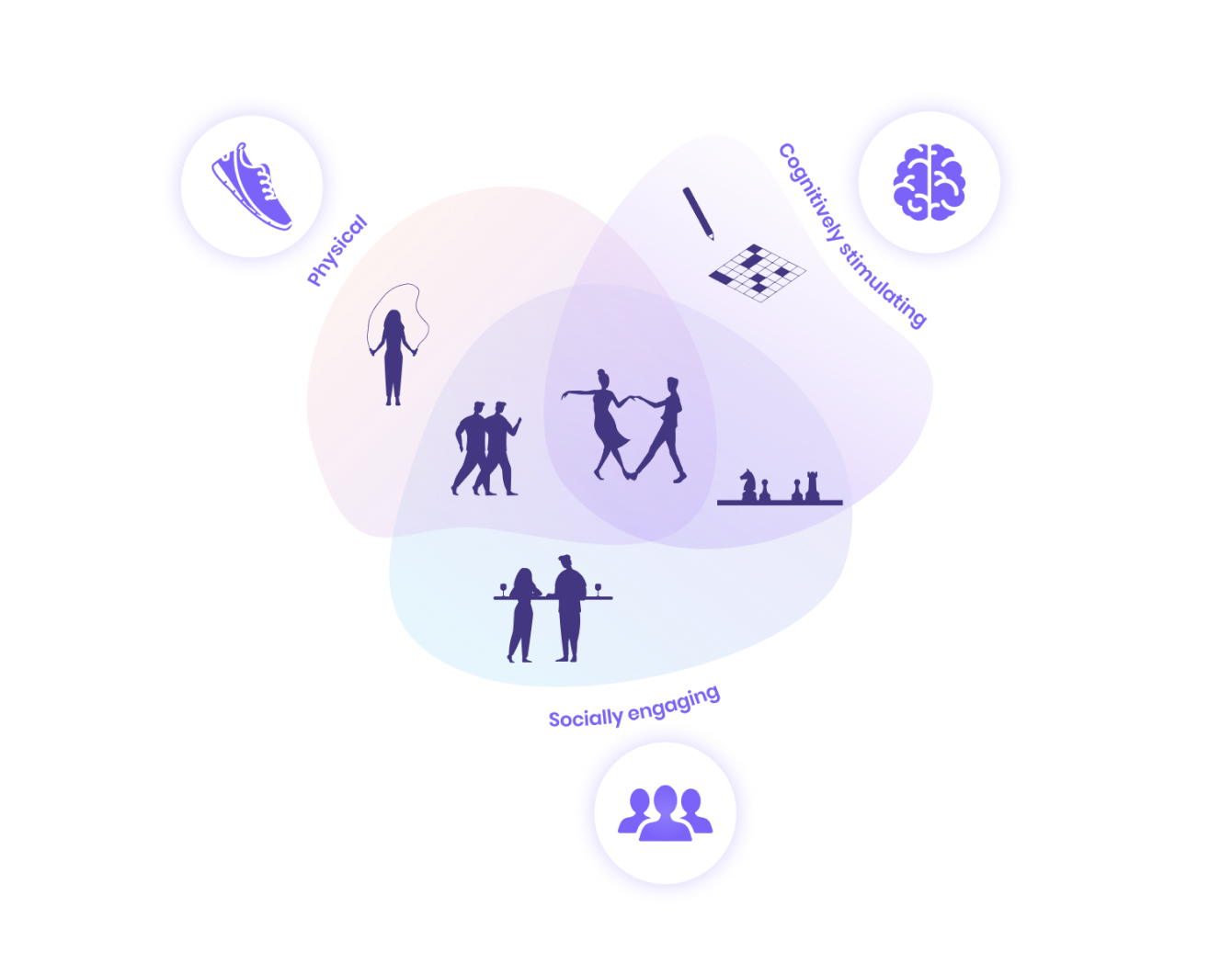
Prevention
Socially and cognitively stimulating activities
Cognitively stimulating activities are mentally engaging activities that challenge a person’s ability to think.
Social engagement refers to interactions with other people that, in particular, are enjoyable.
- Research suggested that activities that are cognitive or socially stimulating, or a combination of both, may help to reduce the risk of some disorders.
- Activities that also have a physical component may also help to reduce the risk of developing some NCDs by targeting several underlying mechanisms at once.
- These activities are important also for an individual´s well-being, quality of life, and mental health (for example on depressive symptoms).
- Some research suggested that social isolation increases the risk of being diagnosed with chronic illnesses, while people with greater social participation have lower risk of suffering from some NCDs.
- There is some evidence to suggest that cognitive and socially stimulating activities, as well as physical activity, may help to decrease the chance of cognitive decline and memory loss
Activities can have a social or physical component, can be cognitive stimulating, or be a combination of two or all three


All socially and cognitively stimulating activities
Social engagement, mental wellbeing, and cognitive stimulation during the COVID-19 pandemic
- Research from the first wave of the pandemic suggest that certain factors, such as loneliness and living alone, might affect coping strategies during the pandemic. However, more research is needed, and it is not yet known whether things have changed over subsequent waves of the COVID-19 outbreak.
- Due to social distancing and other public health measures, many people have experienced a change in their levels of social engagement and cognitively stimulating activities. Many people are now working from home and have limited access to social support, hobbies, and leisure time activities compared to before the pandemic.
- In some individuals, this may lead to feel more anxious or having sleep problems or more frequent depressive symptoms.
- One positive effect of the pandemic is that many people have learned to use new technologies, such as video calling and digital technologies for improving health or communicating with healthcare providers.
It is important to keep socially and cognitively active even during the pandemic.
- Keep in contact with family and friends through video communication.
- Sign-up for an online course to develop a new skill. Many people have adapted to the pandemic and are now offering services such as music lessons or language lessons through video communication apps.
- Organize a video-call “Quiz night” with friends and family once a week. Take it in turns to write questions and be the quiz master.
- Focus on tasks around the house and garden that need doing. Perhaps you have been putting off decorating or the garden needs work.
- Learn new recipes and assign one night a week for a special meal.
- Buy a local map and plan different walking or jogging routes.
- Connect with children or grandchildren on video calls to read them books or tell them stories. Offer to help out with their homework if they have lessons online.
Multidomain interventions: current research on the prevention of non-communicable diseases
- There is currently a lot of research ongoing on how to prevent non-communicable diseases through multidomain interventions.
- Multidomain interventions are strategies that target multiple areas at the same time, for example, modifying lifestyle factors while also controlling risk factors such as high blood pressure. For example, regular screening and control of high blood pressure combined with an intervention to improve diet, increase physical activity levels, and stimulate the brain through cognitive activities.
- Some of the ongoing clinical trials on multidomain interventions have provided promising results on reducing the risk of cardiovascular disease and diabetes, and even slowing cognitive decline. However, research is still ongoing, and results depend on which components are included in the intervention, how long it lasts, and individual characteristics of the person.
You might be interested in

03-12-2021
Physical Activity

01-12-2021
Giving up smoking
